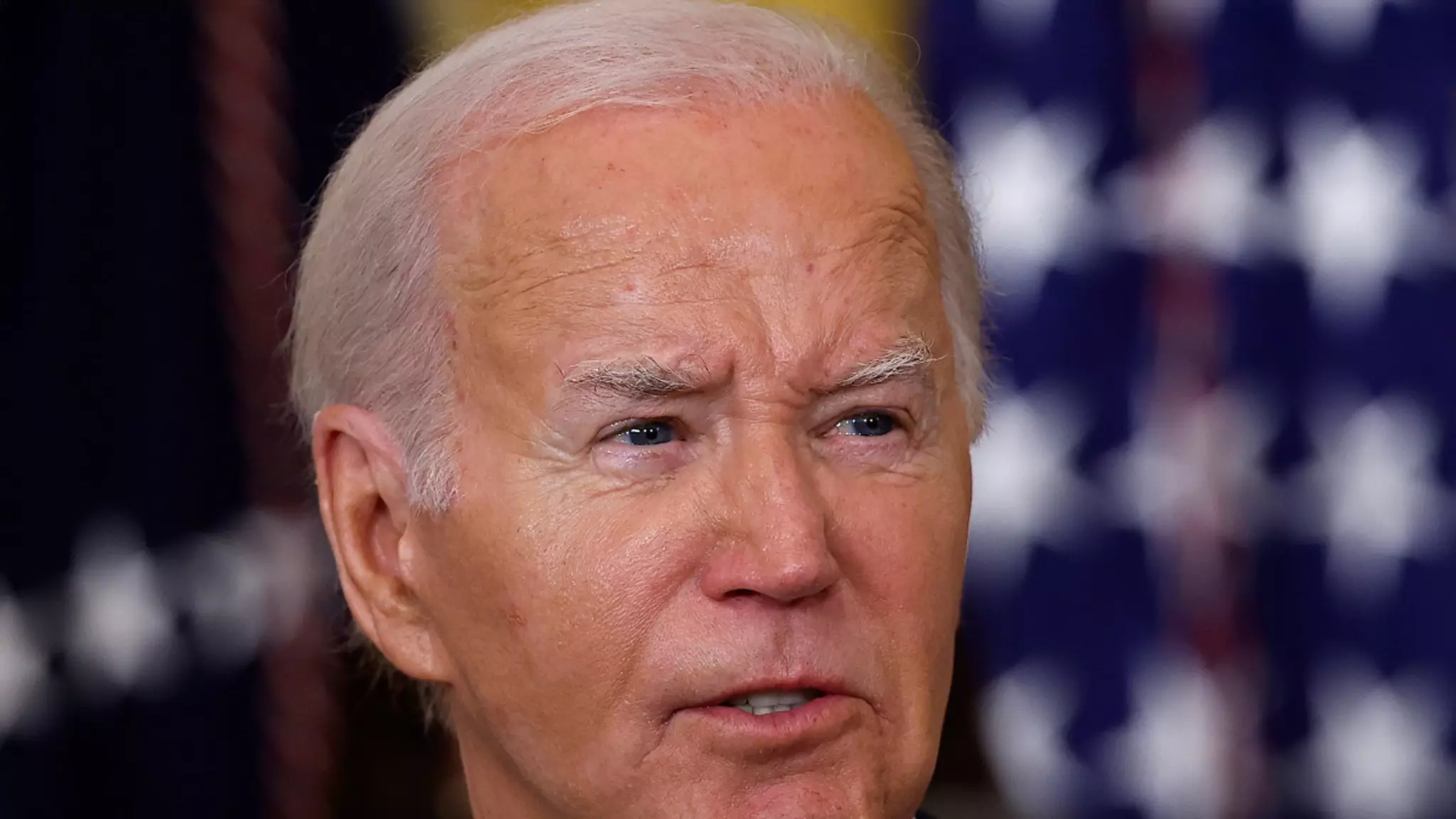As the oldest president in United States history, Joe Biden has faced an uphill battle, not just against political competitors, but also against his own physical limitations. The revelations from the book “Original Sin,” co-authored by CNN’s Jake Tapper, expose the intense scrutiny and strategic maneuvers undertaken by Biden’s team to mitigate the visible signs of his aging. These discussions highlight the inherent tension between public perception and the unrelenting reality of advancing age. Biden’s slow, halting walk was not just a personal challenge; it was perceived as a liability that could potentially endanger his electoral prospects.
The alarming consideration of deploying a wheelchair during his campaign gives us a glimpse into the desperate measures his aides contemplated to mask Biden’s physical decay. This bold strategy underscores a ruthless aspect of political campaigning—maintaining an image, often at the expense of authenticity and transparency. In a world where voters scrutinize every move, Biden’s team grappled with balancing the truth of his health with the optics of a presidential candidate.
The Cognitive Load of Leadership
Biden’s cognitive health has emerged as a critical issue, particularly since the narrative around aging leaders often swings between reverence and skepticism. As reports of Biden’s cognitive decline circulate, they raise justifiable concerns about his capacity to lead. A physician’s warning about potential falls and subsequent mobility issues reinforces a narrative that may ultimately impact his political viability. The pressure from within the Democratic Party, which eventually led to conversations about a potential withdrawal from candidacy, exemplifies the weight of expectation on political figures—especially those who are older.
This pressure is even more pronounced when juxtaposed against typical age-related stereotypes. Biden’s experience in governance should ideally provide reassurance about his leadership capabilities. Yet, the persistent conversation surrounding his mental acuity creates a paradox. One must ponder: can seasoned professionals still function optimally, or does society reserve a mandate for youthfulness in positions of power?
Gender and Politics: A Harsh Landscape
The complex dynamics of the 2020 election further complicate Biden’s situation. The potential candidacy of Kamala Harris reflects not only the history-making nature of her position but also situates her within a discourse often fraught with gender bias. During a recent appearance on “The View,” Biden candidly discussed expectations around Harris, highlighting how sexism could have shaped her electoral journey against Trump. This commentary points towards a broader systemic issue within politics that often undermines women’s leadership.
The juxtaposition of Biden’s established political presence with Harris’s role reveals the nuanced challenges women face as they navigate patriarchal structures, while simultaneously grappling with the weight of legacy—one that does not lessen with age but rather evolves. Amidst this landscape, Harris’s potential ascendance speaks volumes about opportunity in the face of inequity, exemplifying the complex tapestry of modern political life.
Health, Politics, and the Unrelenting March of Time
As Biden undergoes further medical evaluations for health concerns, such as the prostate nodule reported by the New York Times, the intersection of leadership and personal health continues to be scrutinized. In a role where durability and resilience are paramount, the continuing narrative on Biden’s health serves as a potent reminder of the human frailty that exists even at the highest echelons of power. The question persists: how do leaders maintain authority and credibility when their mortal limitations become a focal point in national dialogue?
America’s political landscape demands strong pursuers of progress, but Biden’s journey illustrates the nuanced complexity of leading in the twilight years of one’s career. The evolving political discourse must consider not just the policies of leaders but the human body that implements them, pushing the boundaries of what society expects from its figures of authority.

